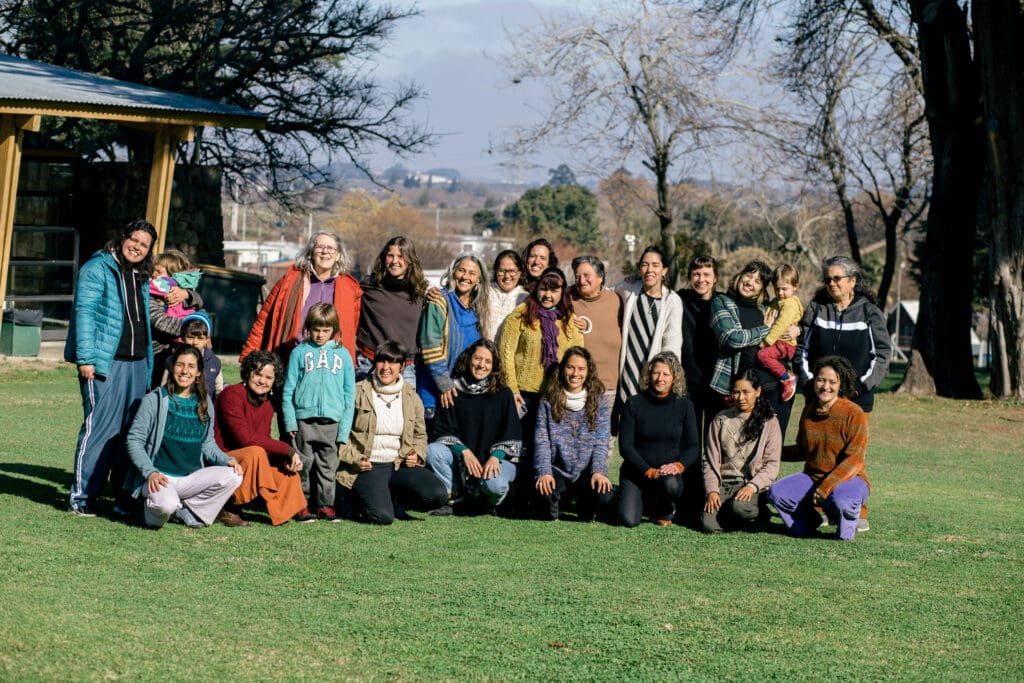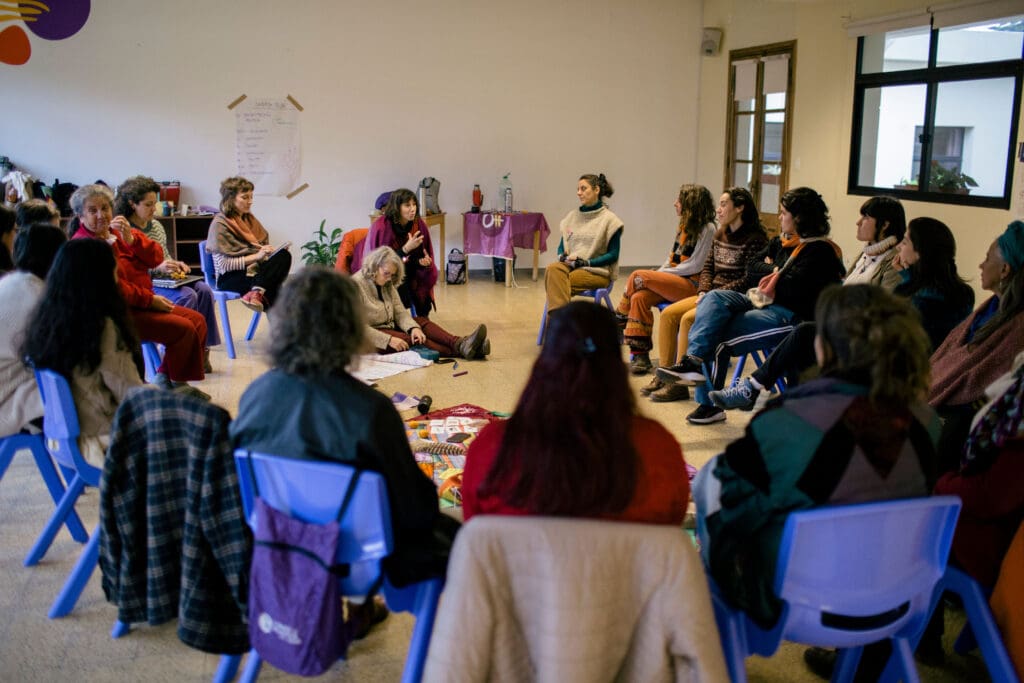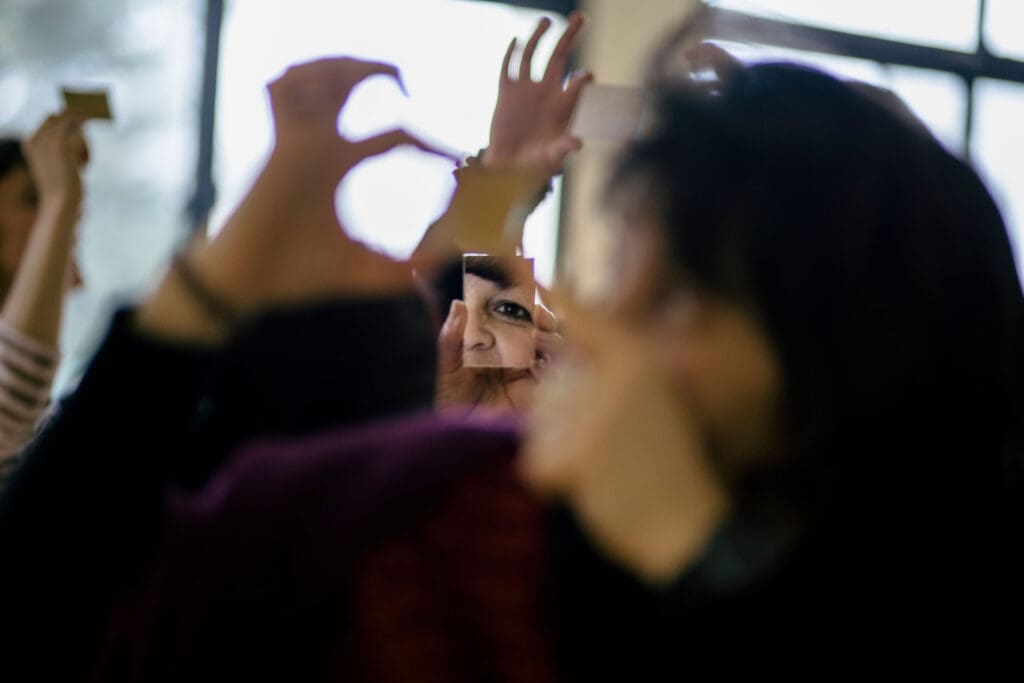In July, 21 women from different territories along the río de los pájaros pintados—the Guaraní name for what is now Uruguay—gathered for the first Feminist Political Ecology School in this corner of Abya Yala.
This school was born from the need to name the violence that shows up in our bodies-territories, and the everyday strategies of resistance emerging from the collective experiences of each woman present. We imagined this school as a space where everyone’s voice could weave together. We also dreamed of it as part of a lineage of experiences seeded across Abya Yala by the collective Miradas Críticas del Territorio desde el Feminismo.
The school is part of a broader ecosystem of women facing hardship across different territories. Participants came from seven collectives: Hum Pampa, rural women of northern Rocha, the collective Las Gurisas, rural women of Piñera-Beisso, the Saludaterritorio collective, the Punta Negra collective, and the Basquadé Inchalá Charrúa community.
Over the course of two very cold and humid winter days, we offered ourselves the space and time to pause and look inward. We reflected on our histories—on the women who came before us and made our presence here possible. We looked at ourselves, our grief and joy, embracing what connects us while honoring our differences.
We looked toward our shared future, the “other world” we want to bring into being, and the urgent work of meeting each other in that planting. We were accompanied by the magic of song, dance, music, stories, the four elements, medicinal herbs, and the joyful presence of the children.

We opened the gathering with a welcoming ritual and a ciranda, a circular dance from neighboring Brazil. We shared how we were arriving—what moved us to be here, and what it took to make the journey. We celebrated being together, knowing that for many it meant long, tiring travel, and for all it required rearranging daily life. During lunch, conversation continued as we enjoyed the food lovingly prepared by Enriqueta. The children joined us for the meal before spending the rest of the day under Fiorela’s care while their mothers participated fully in the School.
Later, we turned to our female lineages, bringing into the present the memories of those who mothered us—and through them, all our ancestral mothers. From that place of presence and accompaniment, we walked through a gallery of body-territory maps we had created in four workshops earlier in the year.
We walked these maps as one walks an unfamiliar landscape, then opened a circle to share sensations, emotions, and resonances. In the afternoon, each collective shared their experiences, then we mixed into new groups to exchange strategies for self-care and caring for life. As night fell—cold and wrapped in dense fog—we gathered in warmth to receive stories and songs from the “Entretejidos” collective. The medicine of stories, music, and herbs guided us through the close of an intense and stirring day.
We began the second day in gratitude—rested and together. We worked in groups around three questions: How do we care for and sustain life? How do we produce knowledge? How do we organize?

We sustain life by weaving and making together; by upholding ancestral traditions; with respect, listening, feeling, observing, knowing each other; through barter, through mingas; through collective funds supporting women’s projects; by making the invisible visible; by creating places to encounter joy and celebration; by caring for how we nourish ourselves and our health; by tending to ourselves; by seeking balance between doing and pausing to reflect; by walking and defending native forests, water, land, plants, seeds, food, agroecology, and self-management; by living our interdependence with non-human worlds and recognizing ourselves as part of nature; by valuing our place, energy, and knowledge as women; by cultivating memory, art, song, and dance; by meeting more often; by visiting each other’s territories; by validating and reclaiming local knowledge; by decolonizing with love; by recording and acknowledging our elders and those yet to come; by tending to moments that allow all of us to be included.
After lunch, we watched the audiovisual piece created with four collectives as part of the ORA project. The other three collectives participating in the School also presented their work. At the end of the gathering—under a strong sun breaking through—we held an evaluation circle and shared possibilities for what might grow next.

We are deeply grateful to all the women who came, for making the time and for the trust they placed in us as we created this School with so much love and hope. We are also grateful for the support of the Omega Resilience Awards throughout this process, and to Fondo de Mujeres del Sur for their financial support and for the chance to once again share space with their representative in Uruguay. A special thanks to the collective some of us belong to, and especially to Joana, who accompanied us in this experience as part of Miradas Críticas del Territorio desde el Feminismo.
With full hearts, all that remains is to offer thanks—for the shared learning that strengthens our collective commitment to a dignified life.
About The Authors
We are Lorena Rodríguez Lezica, Gabriela Veras Iglesias, Nat Tommasino Comeseña, and Alicia Migliaro González, from Uruguay, and this work has been carried out in dialogue with the collective Critical Views of Territory from Feminism. The four of us in Uruguay have been walking together through university outreach and as social activists. In this project, we come together to support four different community experiences in various regions of Uruguay.
This narrative is a collective creation of Lorena, Gabriela, Nat and Alicia, who organized the meetings and workshops within the framework of ORA.



